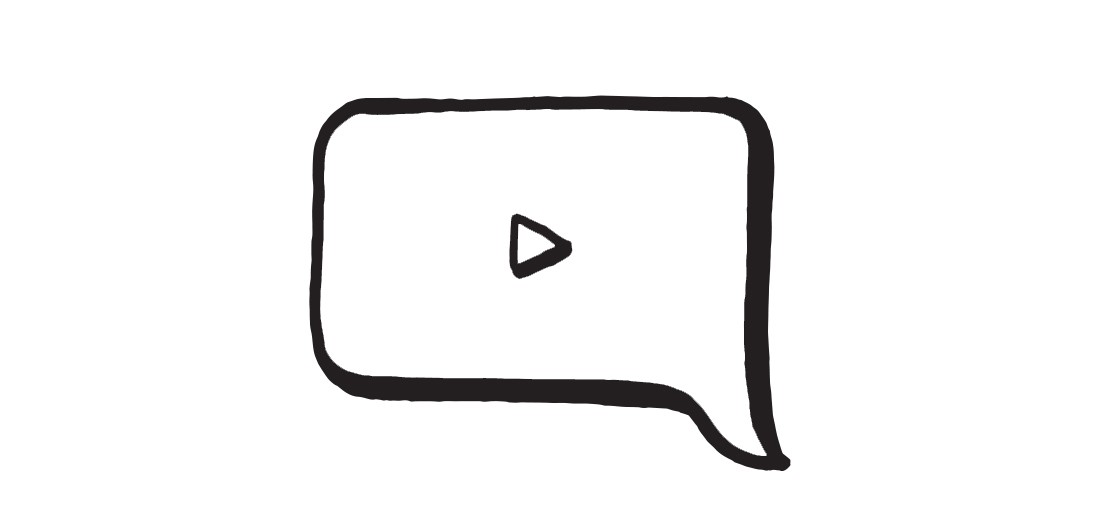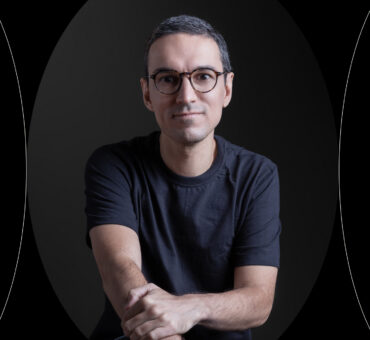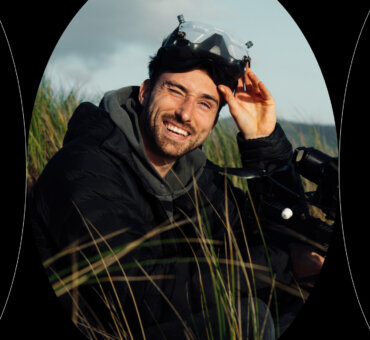If you’re waiting for permission to start making great films, chances are you’ll be waiting forever. Here’s the secret: You don’t need permission. We’re in the ask for forgiveness line of work here. There are no extra-credit assignments. There are no credentials. There are no grades. There’s just you and your camera and your inexplicable desire to put something worthwhile on the screen.
Creative people have a common psychosis. We all feel like big fat frauds. We’re all faking it until we make it. We’ve talked to hundreds of filmmakers over the past few years, and these feelings seem to be almost universal. On the one hand, it’s a relief: we’re not alone. But on the other hand, it’s sad that so many of us are held up by fears that we are not, for whatever reason, totally legit.
Maybe these feelings are even more rampant now that filmmaking’s barriers to entry (mainly access to gear) have all but been removed, and the traditional gatekeepers (investors, studios, distributors) are becoming less and less powerful thanks to YouTube and Vimeo. These are good developments, we believe, but they’re also confusing. What does it mean to be a filmmaker when there is nobody to convince us that we are one? There’s only one option, really: We have to convince ourselves.
Here are 6 forms of permission filmmakers look for but don’t really need.

EDUCATION
The nice thing about college is that when you graduate, they give you a piece of paper that says you went to college. It’s rare proof of how you spent the last few years of your life. You can frame it and hang it on a wall. And for a lot of professions, that piece of paper is permission. For an accountant, say. Or a doctor. Or a professor of economics. But not for a filmmaker. Nobody cares whether or not you got a formal film education. All they care about is your ability to make films. You know that already, but you don’t really believe it. You still think there are filmmaking secrets that are only revealed to third-year NYU film students. And maybe there are. But don’t let the fear of what you don’t know paralyze you. There will always be things you don’t know, no matter what level or form of education you’ve achieved. Not knowing is part of the creative act. As writer Nelson Algren said, “Any writer who knows what he’s doing isn’t doing very much.” Or, in the words of the endlessly quotable Werner Herzog: “You can learn the essentials of filmmaking in two weeks.” You don’t need a degree. You don’t need a bunch of capital letters behind your name. You just need a camera and an idea.

SUCCESS
We might think it’s easier for successful filmmakers to get access to interesting subjects, enlist the help of talented DPs and editors, and drum up interest for their latest projects. We might think that if we haven’t yet built up a name for ourselves ⎯ if we don’t have an impressive bio or About page on our website ⎯ then we aren’t ready to swing for the fences. Sometimes we let our own lack of success keep us from success. We make small-time work because we think of ourselves as small-time people. This line of thinking is not only circular and self-defeating, but it’s also just plain wrong. Talk to any successful filmmaker and you’ll find it’s just as hard for them to create great work, to get people interested and on board, to gain access to subjects. In fact, many successful filmmakers think fondly of the time before they gained any recognition. That’s when they were able to fly under the radar, try new things, fail spectacularly and then try again without anyone knowing. Their work didn’t carry the crushing weight of expectation. The fact is anyone is capable of creating great work at any moment. And anyone is capable of creating bad work at any moment. There’s no coasting. No matter where you’re at in your career, there’s only one thing that matters: What you make next.

MONEY
In the past, investment was a form of permission for filmmakers. The medium was so expensive there was no way to make anything without a significant amount of cash. Obviously times have changed, but investment can still be mistaken for permission. Whether it’s a successful Kickstarter campaign or a generous uncle, someone giving you cash for your project can feel incredibly empowering. It is incredibly empowering. But it’s not a form of permission. Our friends at Convolv recently re-created a realistic rocket launch for the price of a model rocket and a few smoke bombs. Money isn’t what it used to be. It’s a tool now. It’s no longer a barrier.

ACTUAL PERMISSION
There is so much red tape around where, when, what, and whom you can film. And we don’t want to advocate breaking the law, except to say this: rule-followers rarely make very exciting films. Take, for example, Ben Knight and his film DamNation, a project that required Ben to trespass, spend 18 hours in a restricted blast zone, and get threatened with arrest. Had Ben followed the rules, there is no way that film would have turned out as fascinating as it did ⎯ if it even turned out at all. Here’s Ben on the occasional value of working around the law:
“Pretty much everything we did in the film was illegal. Every single day we were trespassing. At one point, I had to sneak into a dam blast zone in the middle of the night wearing full camouflage. We built a camera blind for me to hide in for 18 hours because they were going to blow up the dam the next day. The demolition crew wouldn’t let us anywhere near it. They had a helicopter out looking for people, so I had to lie there under this camouflage blanket. The shot came out pretty cool though.
“Another time, we tried to kayak through this lock system on the Snake River and ended up getting in this huge confrontation with security. The local sheriffs came out and threatened to arrest us, accused us of being terrorists. It was a terrible idea but we needed a way to add some visual context to the issue.”
Are there legitimate dangers and risks involved with this approach? Yes, absolutely. Do you need to be prudent and have good judgement? 100%. At the same time, some films and subject matters can’t be told or filmed by dotting every “i” and crossing every “t”. For more on telling the truth when it’s dangerous, check out this CSMI article: http://cmsimpact.org/resource/dangerous-documentaries-reducing-risk-when-telling-truth-to-power/

SOCIAL FOLLOWING
The past decade has given us an entirely new way of feeling bad about ourselves: our number of followers on social media. Whether you have dozens or millions, it’s hard not to judge the value of what you have to say by the number of people who will hear it. But your audience ⎯ or lack thereof ⎯ has nothing to do with what you’re about to say next. It’s tabula rasa every time. You don’t need a big audience to say something big. Start talking. Your audience will find you.

HAVING ANY IDEA WHAT YOU’RE DOING
In the end, the person who is notoriously the most withholding when it comes to permission is you. I’m not ready, we tell ourselves. I don’t know what I’m doing. So we read more books or blogs. We watch more behind-the-scenes videos. We continually put off making work under the guise of preparing to make work. The problem is we’ll never feel ready. We will never have all our ducks in a row. Nobody is going to come along and hand us a permission slip to make a film. But we have to make films anyway. Reflecting on the success of Radiolab, host Jad Abumrad commented: “Anyone who knows me knows that much of the time, I have very little idea what the hell I’m doing.” Now, Jad is a MacArthur Fellow, a recipient of the Foundation’s annual Genius Award. And he accomplished this by not waiting around for permission ⎯ not even permission from himself.
Here’s our point, really. You have everything you need right now to start making the work you wish you were making. Gear is cheap. Ideas are free. Talented people will appear out of nowhere to help you. Wait and see. They will. You probably aren’t ready. Even so, it’s time to get started.





















































































